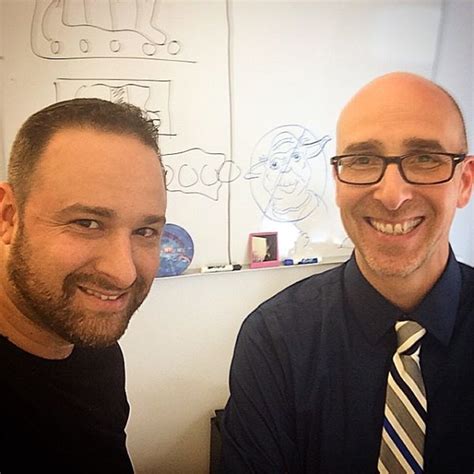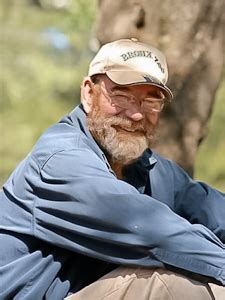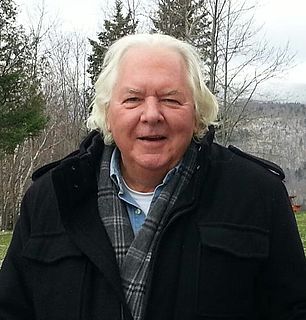A Quote by Joshua Bell
Social media puts us inside our phones and our computers and our headphones, and we're not connecting so much with our outside environment. Even when people go to the Grand Canyon they're more concerned about the selfies than actually looking at the canyon. I see it with my own kids - the addiction to needing things fast, never pausing to just see what's around us and connect with our fellow human beings in real time.
Quote Topics
About
Actually
Addiction
Around
Beings
Canyon
Computers
Concerned
Connect
Connecting
Environment
Even
Fast
Fellow
Fellow Human Beings
Go
Grand
Grand Canyon
Headphones
Human
Human Being
Human Beings
Inside
Just
Kids
Looking
Media
More
Much
My Own
Needing
Never
Our
Outside
Own
Pausing
People
Phones
Puts
Real
Real Time
See
Social
Social Media
Than
Things
Time
Us
Related Quotes
The human heart is the first home of democracy. It is where we embrace our questions: Can we be equitable? Can we be generous? Can we listen with our whole beings, not just our minds, and offer our attention rather than our opinion? And do we have enough resolve in our hearts to act courageously, relentlessly, without giving up, trusting our fellow citizens to join us in our determined pursuit-a living democracy?
We live inside our universe and cannot get a bird's-eye view of it from outside. And we cannot even see all of our universe. Distant parts of it are expanding away from us so fast that they are invisible; they go faster than the speed of light. Having bigger telescopes to see fainter stars will not help us here: invisible is truly invisible.
These days, more than any other time, we are worried about our personal life, our private life. When we talk about our private life, it means our home, our body even. It seems that when we want to have calmness in this world, we make a wall around us. This gives us a very calm environment, and when we feel that somebody is intruding into that, it makes us very angry and we feel we have to do something about it.
Voices surround us, always telling us to move faster. It may be our boss, our pastor, our parents, our wives, our husbands, our politicians, or, sadly, even ourselves. So we comply. We increase the speed. We live life in the fast lane because we have no slow lanes anymore. Every lane is fast, and the only comfort our culture can offer is more lanes and increased speed limits. The result? Too many of us are running as fast as we can, and an alarming number of us are running much faster than we can sustain.
Why do we so mindlessly abuse our planet, our only home? The answer to that lies in each of us. Therefore, we will strive to bring about understanding that we are--each one of us--responsible for more than just ourselves, our family, our football team, our country, or our own kind; that there is more to life than just these things. That each one of us must also bring the natural world back into its proper place in our lives, and realize that doing so is not some lofty ideal but a vital part of our personal survival.
In our fibre-optic world of tweets and tablets, we are more conscious of the world around us. The technicolour violence and humanitarian abuses of today are just a flick of a switch away. In our homes, on the train, in our coffee shops, we see it, we feel it, we know about it. All of us. All of the time. Human suffering is visible, constantly.
Today the thing I find myself thinking about the most is our landscape...I think it's something a lot of us take for granted; for many of us Australia is just there but how many of us have really seen it, have seen Kakadu or Kings Canyon? I know I hope to at some stage, to see Uluru at sunset and the ancient art in the Abrakurrie caves. I think it's our landscape which defines our identity and it's what I'm most grateful for.
We have simply arrived too late in the history of the universe to see this primordial simplicity easily... But although the symmetries are hidden from us, we can sense that they are latent in nature, governing everything about us. That's the most exciting idea I know: that nature is much simpler than it looks. Nothing makes me more hopeful that our generation of human beings may actually hold the key to the universe in our hands - that perhaps in our lifetimes we may be able to tell why all of what we see in this immense universe of galaxies and particles is logically inevitable.
Our ancestors are looking for us even if we're not looking for them. And by our ancestors I mean our bloodlines and the ancestors of the place where we live and our spiritual kin who go beyond our biological families. We could be walking around carrying an entire ancestral history of the wrong kind for us.




































